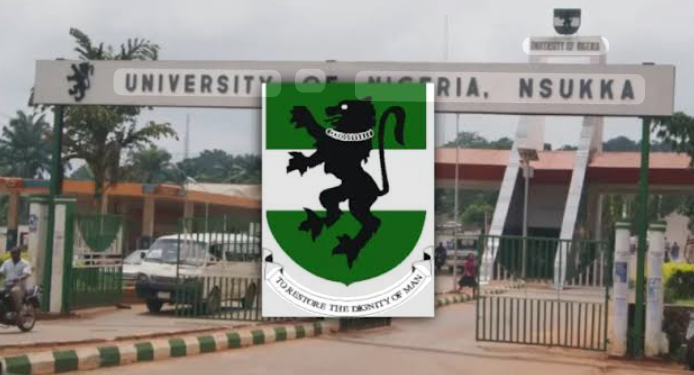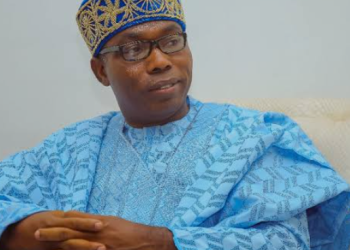By Benson Azude
In the sacred groves of academia, where the pursuit of truth is the highest calling, few acts are as pernicious as the deliberate propagation of falsehood. This sense of grave depravity is further reinforced in an age when misinformation travels faster than truth and half-baked opinions are passed off as investigative reporting. It is against this backdrop that it becomes a civic duty to set the records straight, especially when the integrity of a national institution is at stake. It is with a profound sense of duty to truth and institutional integrity that we address the diatribe by one Mr. Aniebonam Nwamu, titled ‘The Heist at UNN’, an unfortunate piece of sensationalist fiction masquerading as journalism. This write-up, a master-class in malicious speculation, does not merely err in its facts; it actively weaponizes ignorance to undermine a venerable Nigerian institution. The University of Nigeria, Nsukka (UNN), an institution that stands tall as the nation’s first indigenous university – has, once again, found itself in the crosshairs of a reckless pen driven more by bile than by fact. In effect, the only University of Nigeria therefore, finds it imperative to set the record straight, not with rancour, but with the cold, hard steel of empirical evidence and procedural transparency.
Let us begin with the allegation at the heart of Nwamu’s diatribe: that corruption “walks on eight legs” in Nigeria’s citadel of learning; that admission into Medicine and Surgery at UNN is procured by bribery rather than merit; and that the university’s published cut-off score of 338 is a smokescreen for graft. From this seed of conjecture, he cultivates a jumble of insidious insinuations, alleging a bazaar of corruption where admission is bartered for millions of Naira, and “dunces” are ushered into the hallowed halls of learning. Nothing could be farther from the truth. This is not just false; it is a demonstrable inversion of reality, built on a foundational failure to comprehend the clearly-defined and federally-mandated architecture of university admissions in Nigeria. Indeed, what Nwamu presents as ‘exposé’ is little more than armchair conjecture, unsupported by data and bereft of understanding of how Nigeria’s tertiary admission system actually works.
To begin with, the University’s admission process is not a cryptic art but a science governed by public policy. Generally, admissions into federal universities are not whimsical exercises conducted in some shadowy corners of authority. They are governed by clear, verifiable procedures jointly supervised by the Joint Admissions and Matriculation Board (JAMB), the National Universities Commission (NUC), and the Federal Ministry of Education. UNN, like other reputable federal institutions, follows the JAMB-approved formula: 45% (Merit), 35% catchment (Locality), and 20% Educationally Less Developed States (ELDS). These three pillars are not administrative inventions of UNN’s Vice Chancellor or Admission Officer; they are national policy instruments designed to balance meritocracy with federal character, ensuring both excellence and equity in access.
For the avoidance of doubts, this set of criteria is a common thread, which runs through the admission policy of all federal universities. Specifically, Merit (45%) is the baseline of academic excellence. For Medicine and Surgery at UNN, this year’s merit cut-off stands at a robust 338.0, a testament to the highly competitive nature of the programme. In recognition of the University’s founding philosophy and to ensure a diverse intellectual environment, a significant quota is reserved for candidates from the catchment areas (the former Eastern Region). This is a national policy, not a UNN invention. The ELDS’ 20% suffices as a critical tool for national integration and bridging developmental gaps, mandated by the Federal Government to offer opportunities to candidates from states with historically lower educational output. It is this very framework that Mr. Nwamu either misunderstands or willfully misrepresents.
It is within this framework that UNN’s 2025/2026 admission into Medicine and Surgery was processed. The cut-off marks, duly approved and published, stand as follows: 338.0 for merit; locality cut-offs ranging from 314.2 (Ebonyi) to 334.5 (Enugu); and ELDS cut-offs ranging from 280.3 (Kaduna) to 317.3 (Bayelsa). Every discerning observer of Nigeria’s admission landscape understands that scores vary by these federally approved categories — and therefore, it is not only possible but inevitable that some admitted candidates scored below the merit benchmark due to the catchment and ELDS considerations. That is not corruption; it is policy; it is equity codified by law.
Yet, Mr. Nwamu would have his readers believe otherwise. His rhetorical question – “Did 225 candidates who used UNN as first choice score 338 and above in UTME this year?” – is a disingenuous ploy. The answer, of course, is that fewer than 10 may have crossed that mark; but that is true for every competitive medical programme in Nigeria, not UNN alone. The point, however, is not how many scored 338, but how the admissions formula harmonizes JAMB scores with post-UTME results and national criteria. The claim that parents are made to “bribe some crooks with N3 million or more” for admission is not only scandalous but defamatory, unsupported by any shred of evidence. UNN’s Admission Officer, in a formal response, dismissed the article as “entirely unfounded, baseless, and malicious” — and rightly so.
For clarity sake, over 600 candidates scored above 300 in Medicine alone at UNN this year. The final admission list was generated by the faculties, vetted by the Admission Unit, and validated at the Committee of Deans meeting. At each stage, due process was followed, transparency ensured, and oversight mechanisms observed. Indeed, JAMB itself must approve and upload the final list before admission letters are issued. How, then, could any individual – or “crooks,” as Nwamu imagines – manipulate such a multilayered process without detection?
What is troubling in Nwamu’s article is not merely its factual emptiness but its moral recklessness – the casual ease with which it maligns hardworking officials and impugns the reputation of a great institution, such as the University of Nigeria. Words matter. When one proclaims that “dunces, expo graduates, and crooks have invaded Nigerian universities,” one indicts not just the system but the dreams of thousands of young Nigerians, who burn the midnight oil in pursuit of excellence. When one suggests that “killer doctors, criminal lawyers, incompetent engineers, and kleptocratic leaders” will emerge from UNN’s corridors, one flings mud at the very ideal of education as a redemptive force.
It is therefore imperative to remind the public that UNN is not a backwater institution limping on moral crutches. It is a university that has, since 1960, produced iconic figures of international repute, technocrats, public servants, and global scholars. Under the able leadership of its 16th Vice Chancellor, Professor Simon Uchenna Ortuanya, UNN has embarked on reforms to enhance transparency, digitalize admissions, and strengthen institutional accountability. The prompt clarifications from the Admission Officer demonstrates a leadership that is responsive, data-driven, and committed to due process. It is an added impetus to merit, integrity, and service, which denominate the new administration’s watchwords – the very antithesis of the caricature Nwamu paints.
To the casual reader, Nwamu’s ‘Heist at UNN’ might appear as yet another crusade against corruption. But in substance, it is an act of vandalism against truth. It confuses anecdote with analysis, slander with scrutiny, and outrage with evidence. Journalism, at its best, enlightens and reforms; at its worst, it inflames and misleads. The tragedy of this particular article lies in its descent into the latter. The article’s venom appears particularly directed at the nascent administration of Prof. Simon Uchenna Ortuanya, the 16th Vice-Chancellor of UNN. To allege a systemic ‘heist’ of this magnitude so early in his tenure is to operate with a presumption of guilt that is both unfair, unprofessional, congenitally wicked.
Perhaps, it bears repeating that UNN’s 2025/2026 admission exercise was conducted strictly in accordance with national guidelines, subject to institutional vetting, and reflective of federal character considerations. The primary admission list, as released, bears no trace of manipulation. To insist otherwise without proof is to weaponize speculation, a moral crime worse than the so-called ‘heist,’ a ghost raised out of the writer’s vegetative mind. The Fourth Estate wields immense power, and with that power comes the grave responsibility of verification. Mr. Nwamu’s piece is a classic example of what happens when this responsibility is abdicated at the altar of sensationalism. It is a ‘crap of malicious falsehood,’ to borrow the Admission Officer’s apt description, that seeks to impugn an institution’s hard-earned reputation based on nothing more than the writer’s own statistical illiteracy and prejudiced assumptions. UNN’s primary admission list for the 2025/2026 academic session was, as demonstrated, strictly guided by established criteria. There was no heist. The only robbery attempted here by Mr. Nwamu is the one on the truth and the reputation of a thousand young, bright Nigerians who have earned their place through merit and legitimate policy provisions.
In conclusion, the public and the media are hereby implored to rise above such baseless and corrosive narratives. Let us critique our institutions constructively, armed with facts and a genuine desire for reform, not with the poison of unsubstantiated allegations. The University of Nigeria, Nsukka, remains steadfast in its commitment to excellence, equity, and transparency, and stands undaunted by the storm of falsehood. It will not be derailed by the fickle fantasies of naysayers, but will continue its noble mission of building minds and shaping the future of the nation, in truth and in honour.
To Mr. Nwamu and his ilk, one can only offer a simple admonition. Criticism is noble when rooted in truth, but reckless when watered by malice. Let us, therefore, defend the sanctity of facts, for in an era of viral falsehoods, truth remains the last citadel of learning. As the Lion roars from the Den of Nsukka, one message resounds clear. You can malign the messenger, but you cannot silence the truth!









